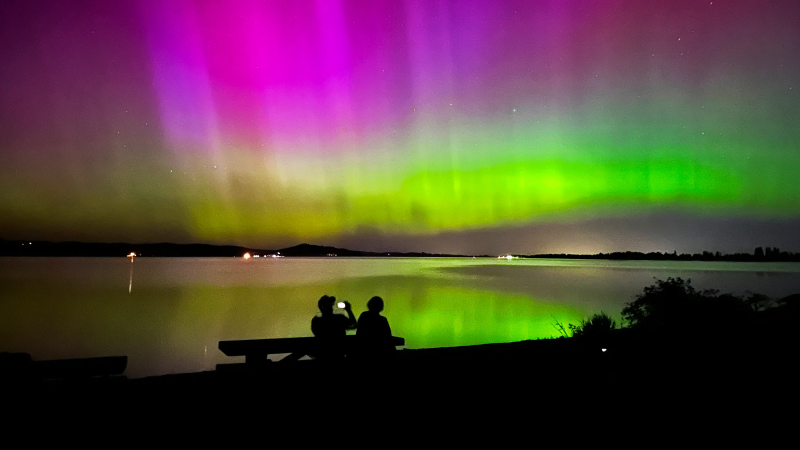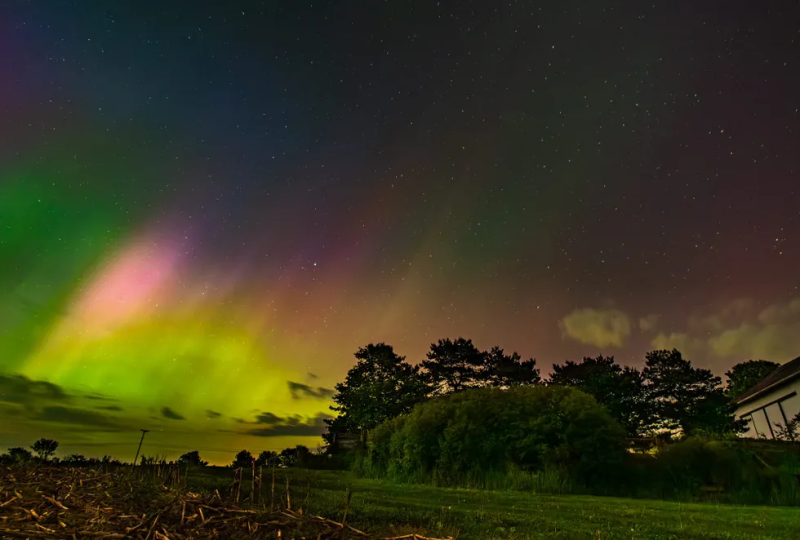Solar storm makes northern lights visible to much of US, world during weekend: See photos
A powerful geometric storm during the weekend unleashed spectacular views of the northern lights that dazzled skygazers in the U.S. and across the world.
Those in the northern half of the U.S. – and even as far south as the Florida Keys – had a rare front row seat to the aurora borealis thanks to a series of solar flares that set off the storm and triggered the famous natural light display.
Seven coronal mass ejections courtesy of the solar flares entered Earth's outer atmosphere Friday – a day after NOAA issued a rare storm watch for the first time in 19 years. As anticipated, the solar storm that the coronal mass ejections – clouds of plasma and charged particles – caused led to some reports of power grid irregularities and functional decreases in high-frequency, communications and GPS systems, NOAA said.
But because the sun is at the height of its 11-year solar cycle, the storm also created optimal conditions for the auroras to put on a light show for far more Americans than usual.
If you missed out on glimpsing the rare sight, the National Oceanic and Atmospheric Administration says you may have another chance Monday night as the solar storms continue.

Geometric storm:Solar storm could have disrupted communications
Will the northern lights still be visible tonight?
Though the solar storms have significantly weakened since arriving Friday, they are expected to continue at least through Monday, according to NOAA.
The agency began tracking the explosive bursts of radiation known as solar flares on Wednesday from a sunspot cluster that's a whopping 16 times wider than Earth.
Forecasters use a five-level scale to measure geometric storms. At a G4, the one that arrived Friday was just a single level away from being the most severe solar storm possible, according to NOAA. The Severe (G4) Geomagnetic Storm Watch the agency posted on Thursday marked its first since 2005.
The storm may persist through Monday but has been downgraded to the G3 level, NOAA's Space Weather Prediction Center said in a Sunday night update on social media site X.
What does that mean for skygazers? Those dazzling auroras may still be visible, but don't expect anything as stunning as what people saw during the weekend.
See dazzling photos of the northern lights

Eric Lagatta covers breaking and trending news for USA TODAY. Reach him at elagatta@gannett.com
Disclaimer: The copyright of this article belongs to the original author. Reposting this article is solely for the purpose of information dissemination and does not constitute any investment advice. If there is any infringement, please contact us immediately. We will make corrections or deletions as necessary. Thank you.





